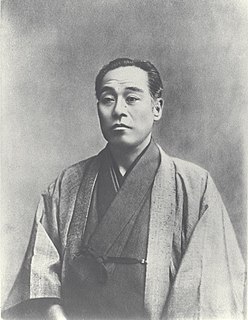Цитата Аристотеля
... жизнь, которая лучше всего подходит для людей, как по отдельности, как отдельных лиц, так и в массе, как государств, - это жизнь, в которой добродетель достаточно поддерживается материальными ресурсами, чтобы облегчить участие в действиях, к которым призывает добродетель.
Связанные цитаты
Если верно то, что было сказано в Этике, что счастливая жизнь есть жизнь по добродетели, живущая беспрепятственно, и что добродетель есть середина, то жизнь, находящаяся в средней и в средней, достижимой для каждого, должна будь лучшим. И те же самые принципы добродетели и порока характерны для городов и конституций; для конституции в фигуре жизни города.
Итак, если, как мы говорим, хорошие мастера в своей работе смотрят на середину и если добродетель, подобно природе, точнее и лучше всякого искусства, то из этого следует, что добродетель имеет свойство попадать в середину. Я имею в виду моральную добродетель [не интеллектуальную], поскольку она связана с эмоциями и действиями, в которых можно иметь избыток или недостаток или должное среднее.
Если атрибутом народного правления в мирное время является добродетель, то атрибутом народного правления во время революции являются в одно и то же время добродетель и террор, добродетель, без которой террор губителен, террор, без которого добродетель бессильна. Террор есть не что иное, как правосудие, быстрое, суровое, непреклонное; таким образом, это эманация добродетели.
В широком смысле цивилизация означает не только удовлетворение повседневных потребностей, но и утончение знаний и взращивание добродетели с тем, чтобы поднять человеческую жизнь на более высокий уровень... Она относится к достижению как материального благополучия, так и возвышение человеческого духа, [но] поскольку то, что производит человеческое благополучие и утонченность, - это знание и добродетель, цивилизация в конечном итоге означает прогресс человеческого знания и добродетели.
Лучшая броня старости — хорошо прожитая предшествовавшая ей жизнь; жизнь, занятая стремлением к полезным знаниям, благородными действиями и практикой добродетели; в котором тот, кто трудится над улучшением себя с юности, в старости пожнет самые счастливые их плоды; не только потому, что они никогда не покидают человека, даже в глубокой старости; но потому, что Совесть, свидетельствующая о том, что наша Жизнь была прожита не зря, вместе с Памятью о былых добрых Делах, доставляет душе неизреченное Утешение.
В общем, все действия и привычки следует считать хорошими или плохими по их причинам и полезности по отношению к обществу, а не по их посредственности и не по их похвале. Ибо некоторые люди хвалят разные обычаи, и, наоборот, то, что один называет пороком, другой называет добродетелью, в зависимости от их нынешних привязанностей.



































